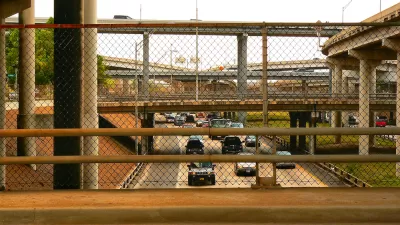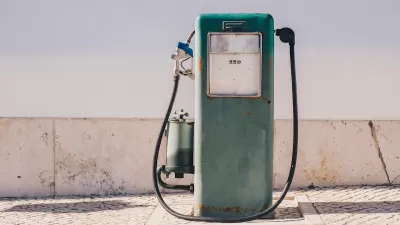Implementing a tax based on miles traveled could disincentivize purchasing more efficient cars and would do little to improve road safety, one columnist argues.

"Americans are increasingly driving hybrid and electric-only cars, reducing emissions and curbing gasoline consumption — accomplishing key goals of the Biden administration," writes Justin B. Hollander. But "[i]mposing a new Vehicle Miles Traveled (VMT) tax," included in the infrastructure bill passed by the Senate last week, "would likely flush away all those prior investments in efficiency and remove much of the incentive for someone to purchase and operate a hybrid or electric-only car."
"Presently, the 18.4 cents (or 24.4 cents for diesel) per gallon gas tax generates over $30 billion annually to help pay for a range of highway, rail and other transit costs," but "critics worry that our increasingly fuel-efficient vehicles, move towards fully electric cars and a decline in overall car use threaten the fiscal future of national transportation funding." In Hollander's view, "the answer for the U.S. DOT is to simply increase the gas tax and get more cars off our roads."
"The gas tax has been shown in numerous research studies to be an effective policy tool that discourages driving and encourages the use of public transit. If the U.S. DOT needs more money, then they ought to seek out congressional support for raising the gas tax — it has not increased since 1993," argues Hollander. "Create a brand new, national-level taxation system based on vehicle miles traveled and you will discourage the use of environmentally friendly cars and do nothing to actually make us safer from the hazards of cars and trucks."
FULL STORY: The Senate's Vehicle Miles Traveled Tax is bad for our health

Planetizen Federal Action Tracker
A weekly monitor of how Trump’s orders and actions are impacting planners and planning in America.

Maui's Vacation Rental Debate Turns Ugly
Verbal attacks, misinformation campaigns and fistfights plague a high-stakes debate to convert thousands of vacation rentals into long-term housing.

Cuomo Is the Candidate of Both NIMBYs and Developers. What Gives?
In the New York City mayoral race, odd bedfellows align to preserve the housing status quo.

The Subversive Car-Free Guide to Trump's Great American Road Trip
Car-free ways to access Chicagoland’s best tourist attractions.

San Antonio and Austin are Fusing Into one Massive Megaregion
The region spanning the two central Texas cities is growing fast, posing challenges for local infrastructure and water supplies.

Charlottesville Temporarily Has No Zoning Code
A judge ordered the Virginia city to throw out its newly revised zoning code, leaving permitting for new development in legal limbo.
Urban Design for Planners 1: Software Tools
This six-course series explores essential urban design concepts using open source software and equips planners with the tools they need to participate fully in the urban design process.
Planning for Universal Design
Learn the tools for implementing Universal Design in planning regulations.
Heyer Gruel & Associates PA
JM Goldson LLC
Custer County Colorado
City of Camden Redevelopment Agency
City of Astoria
Transportation Research & Education Center (TREC) at Portland State University
Jefferson Parish Government
Camden Redevelopment Agency
City of Claremont





























